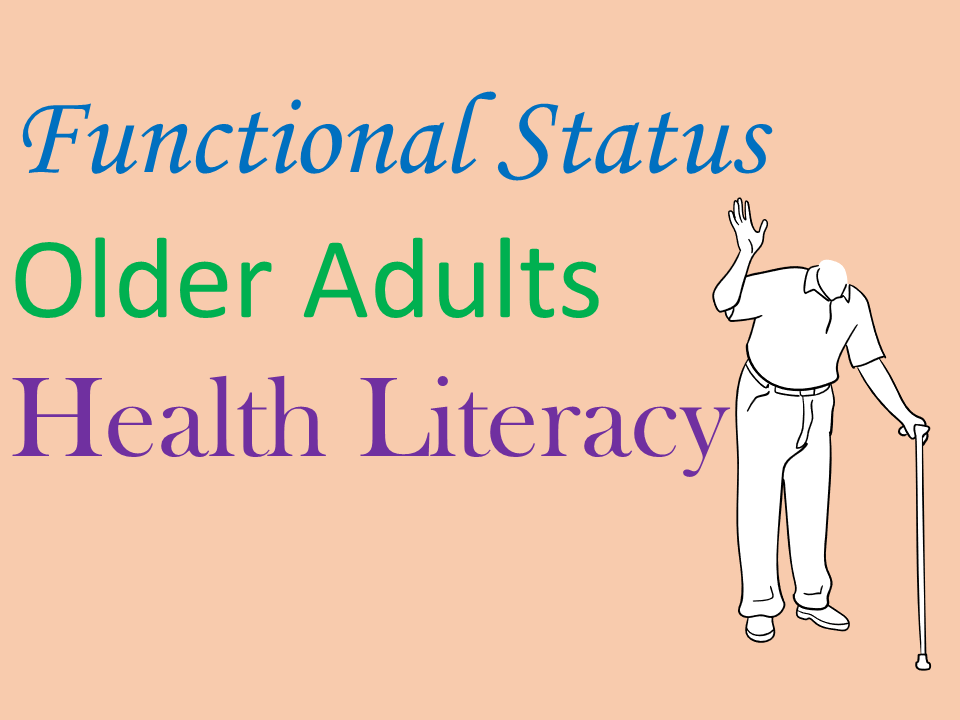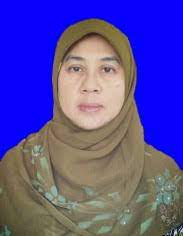Improving Functional Status of Older Adults Through Health Literacy Media: A Systematic Review
DOI:
https://doi.org/10.23917/bik.v17i2.5063Keywords:
older adult, health literacy, health education, functional statusAbstract
Older age can be followed by an aging process that shows a decrease in physical function due to various degenerative problems that reduce immunity caused the older adults vulnerable to infectious diseases. Health literacy can improve the physical function of the older adults in using self management agents, social support, access to health services and increasing the quality of life of older adults. The aim of this paper is to obtain the existence evidence of health literacy impact in improving older adults health status and functional or physical well-being living in community-setting and clinical setting. This paper used some databases Proquest database, PubMed, Sage Journal, Scopus, Ebscohost, Science Direct, anf Taylor & Francis. There are 11 articles published between 2014 - 2024 were reviewed using the PRISMA method. This review found that there are different types of health literacy media (print and digital) and there are combination of health literacy with physical activity interventions to deliver health information to older people. Standardized health literacy media in readability, and easy to use such as video/web/electronic, game-based, digital, and mobile-based and health literacy interventions combined with planned physical activities can increase knowledge, self-efficacy, cognitive function, quality of life, and reducing frailty score, fall risk, depression score.
Downloads
References
Aspinall, E. E., Beschnett, A., & Ellwood, A. F. (2012). Health Literacy for Older Adults: Using Evidence to Build a Model Educational Program. Medical Reference Services Quarterly, 31(3), 302–314. https://doi.org/10.1080/02763869.2012.698174
Badan Pusat Statistik. (2021). Statistik Penduduk Lanjut Usia 2021. Statistik Penduduk Lanjut Usia 2021 - Badan Pusat Statistik Indonesia (bps.go.id)
Buss, A., Wolf-Ostermann, K., Dassen, T., Lahmann, N., & Strupeit, S. (2016). Effectiveness of educational nursing home visits on quality of life, functional status and care dependency in older adults with mobility impairments: A randomized controlled trial. Journal of Evaluation in Clinical Practice, 22(2), 213–221. https://doi.org/10.1111/jep.12457
Chin, J., Madison, A., Gao, X., Graumlich, J. F., Conner-Garcia, T., Murray, M. D., Stine-Morrow, E. A. L., Morrow, D. G., & Pruchno, R. (2017). Cognition and health literacy in older adults’ recall of self-care information. Gerontologist, 57(2), 261–268. https://doi.org/10.1093/geront/gnv091
Chiu C-J, Kuo S-E, Lin D-C. (2019). Technology-embedded health education on nutrition for middle-aged and older adults living in the community. Global Health Promotion. 2019;26(3):80-87. doi:10.1177/1757975917732351
Choi, J. (2016). Effect of pictograph-based discharge instructions on older adults’ comprehension and recall: A pilot study. Research in Gerontological Nursing, 9(2), 66–71. https://doi.org/10.3928/19404921-20150513-05
Dickinson D, Raynor D.K, Duman, Mark. (2001). Patient information leaflets for medicines: using consumer testing to determine the most effective design, Patient Education and Counseling, Volume 43, Issue 2, 2001, Pages 147-159, ISSN 0738-3991, https://doi.org/10.1016/S0738-3991(00)00156-7. (https://www.sciencedirect.com/science/article/pii/S0738399100001567)
Doi-Kanno, M., Kanoya, Y., & Moriguchi, E. H. (2021). The effects of a leaflet-based health guide on health literacy, self-efficacy, and satisfaction among older Japanese-Brazilian adults living in Brazil: A quasi-experimental study. BMC Public Health, 21(1). https://doi.org/10.1186/s12889-020-10129-1
Ghalenow, H., Nikpeyma, N., Kazemnejad, A., Ansari, M., & Pashaeypoor, S. (2022). Effect of educational program based on health literacy index on self-care ability among older adults: A randomized clinical trial. International Journal of Preventive Medicine, 13(1). https://doi.org/10.4103/ijpvm.IJPVM_506_20
Hall, A. K., Bernhardt, J. M., & Dodd, V. (2015). Older Adults Use of Online and Offline Sources of Health Information and Constructs of Reliance and Self-Efficacy for Medical Decision Making. Journal of Health Communication, 20(7), 751–758. https://doi.org/10.1080/10810730.2015.1018603
Kazemi, D. M., Troutman-Jordan, M., Whitfield, J. E., & Pappa, E. V. (2021). Effectiveness of eHealth technology-based interventions in reducing substance misuse among older adults: A systematic review. In Journal of Gerontological Nursing (Vol. 47, Issue 10, pp. 23–29). Slack Incorporated. https://doi.org/10.3928/00989134-20210908-04
Kementerian Kesehatan Republik Indonesia. (2016). Situasi Lanjut Usia di Indonesia. (PDF) infodatin lansia 2016.pdf | Sona Achmad - Academia.edu
Kementerian Sosial Republik Indonesia. (2021). Pedoman Operasional ATENSI LU Asistensi Rehabilitasi Sosial Lanjut Usia. Kementerian Sosial Repiblik Indonesia. kemensos.go.id/uploads/topics/16384414877504.pdf
Lee, H., Lim, J. A., & Nam, H. K. (2022). Effect of a Digital Literacy Program on Older Adults’ Digital Social Behavior: A Quasi-Experimental Study. International Journal of Environmental Research and Public Health, 19(19). https://doi.org/10.3390/ijerph191912404
Leung, A., Kwan, C., Leung, I., & Chi, I. (2016). Inadequate health literacy and more hospitalisation among frail older adults in Hong Kong. Asian Journal Gerontology & Geriatrics, 11(1). Retrieved from https://www.proquest.com/scholarly-journals/inadequate-health-literacy-more-hospitalisation/docview/2559480864/se-2
Liu, Y. B., Xue, L. L., Xue, H. P., & Hou, P. (2018). Health literacy, self-care agency, health status and social support among elderly Chinese nursing home residents. Health Education Journal, 77(3), 303–311. https://doi.org/10.1177/0017896917739777
Lopez-Olivo, M. A., des Bordes, J. K. A., Lin, H., Rizvi, T., Volk, R. J., & Suarez-Almazor, M. E. (2020). Comparison of multimedia and printed patient education tools for patients with osteoporosis: a 6-month randomized controlled trial. Osteoporosis International, 31(5), 857–866. https://doi.org/10.1007/s00198-019-05210-4
Otani H, Morita T, Uno S, et al. (2019). Effect of Leaflet-Based Intervention on Family Members of Terminally Ill Patients With Cancer Having Delirium: Historical Control Study. American Journal of Hospice and Palliative Medicine®.31(3):322-326. https://doi.org/10.1177/1049909113486171
Magnani, J. W., Mujahid, M. S., Aronow, H. D., Cené, C. W., Dickson, V. V., Havranek, E., Morgenstern, L. B., Paasche-Orlow, M. K., Pollak, A., & Willey, J. Z. (2018). Health Literacy and Cardiovascular Disease: Fundamental Relevance to Primary and Secondary Prevention: A Scientific Statement From the American Heart Association. In Circulation (Vol. 138, Issue 2, pp. e48–e74). NLM (Medline). https://doi.org/10.1161/CIR.0000000000000579
Manafo, E., & Wong, S. (2012). Health literacy programs for older adults: A systematic literature review. In Health Education Research (Vol. 27, Issue 6, pp. 947–960). https://doi.org/10.1093/her/cys067
Panagioti, M., Skevington, S. M., Hann, M., Howells, K., Blakemore, A., Reeves, D., & Bower, P. (2018). Effect of health literacy on the quality of life of older patients with long-term conditions: a large cohort study in UK general practice. Quality of Life Research, 27(5), 1257–1268. https://doi.org/10.1007/s11136-017-1775-2
Radhakrishnan, K., Julien, C., Baranowski, T., O’Hair, M., Lee, G., de Main, A. S., Allen, C., Viswanathan, B., Thomaz, E., & Kim, M. (2021). Feasibility of a sensor-controlled digital game for heart failure self-management: Randomized controlled trial. JMIR Serious Games, 9(4). https://doi.org/10.2196/29044
Romalee, W., Tsai, F. T., Hsu, Y. C., Hsu, M. L., & Wang, D. H. (2024). Effectiveness of mobile augmented reality–integrated oral health education for community-dwelling older adults: A randomized controlled trial. Archives of Gerontology and Geriatrics, 117. https://doi.org/10.1016/j.archger.2023.105277
Seangpraw, K., Ong-Artborirak, P., Boonyathee, S., Kantow, S., Panta, P., Winaiprasert, P., & Bootsikeaw, S. (2023). Effect of Health Literacy Intervention on Glycemic Control and Renal Function Among Thai Older Adults at Risk of Type 2 Diabetes Mellitus. Clinical Interventions in Aging, 18, 1465–1476. https://doi.org/10.2147/CIA.S413456
Seino, S., Nishi, M., Murayama, H., Narita, M., Yokoyama, Y., Nofuji, Y., Taniguchi, Y., Amano, H., Kitamura, A., & Shinkai, S. (2017). Effects of a multifactorial intervention comprising resistance exercise, nutritional and psychosocial programs on frailty and functional health in community-dwelling older adults: A randomized, controlled, cross-over trial. Geriatrics and Gerontology International, 17(11), 2034–2045. https://doi.org/10.1111/ggi.13016
Smith, C. A., Chang, E., Gallego, G., Khan, A., Armour, M., & Balneaves, L. G. (2019). An education intervention to improve decision making and health literacy among older Australians: A randomised controlled trial. BMC Geriatrics, 19(1). https://doi.org/10.1186/s12877-019-1143-x
Sun, K. T., Shieh, T. M., Hsia, S. M., Ningrum, V., Lin, X. Y., & Shih, Y. H. (2021). Easy to read health education material improves oral health literacy of older adults in rural community-based care centers: A quasi-experimental study. Healthcare (Switzerland), 9(11). https://doi.org/10.3390/healthcare9111465
Sun, X., Yan, W., Zhou, H., Wang, Z., Zhang, X., Huang, S., & Li, L. (2020). Internet use and need for digital health technology among the elderly: A cross-sectional survey in China. BMC Public Health, 20(1). https://doi.org/10.1186/s12889-020-09448-0
Wali, S., Keshavjee, K., Nguyen, L., Mbuagbaw, L., & Demers, C. (2020). Using an Electronic App to Promote Home-Based Self-Care in Older Patients with Heart Failure: Qualitative Study on Patient and Informal Caregiver Challenges. JMIR Cardio, 4(1). https://doi.org/10.2196/15885
Wang, C. H., Chang, W. P., Chen, S. R., Cheng, W. J., Chou, K. R., & Pien, L. C. (2022). Health Literacy and Exercise to Treat Frailty in Community-Dwelling Older Adults: A National Survey Study. International Journal of Environmental Research and Public Health, 19(14). https://doi.org/10.3390/ijerph19148711
Wilson-Stronks, A., Cordero, C. L., & Carr, M. (2010). The Joint Commission: Advancing Effective Communication, Cultural Competence, and Patient- and Family-Centered Care: A Roadmap for Hospitals. National Health Law Program. http://www.jointcommission.org.
Xie, B., Watkins, I., & Huang, M. (2010). Older Adults’ Perceptions and Use of Web-based Multimedia Health Tutorials. ACM Digital Library, IHI '10: Proceedings of the 1st ACM International Health Informatics Symposium. Pages 565–574. https://doi.org/10.1145/1882992.1883085

Submitted
Accepted
Published
How to Cite
Issue
Section
License
Copyright (c) 2024 Trisnawati Paulus Tandilangi, Etty Rekawati, Winda Eriska

This work is licensed under a Creative Commons Attribution 4.0 International License.


















